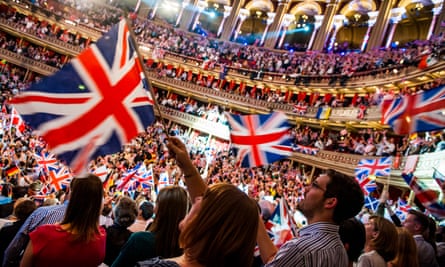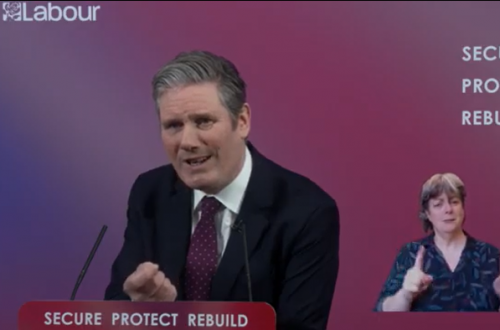A group of activists, including Sunny Hundal from Pickled Politics, the journalist Ziauddin Sardar, the playwright Gurpreet Kaur Bhatti, Farmida Bi from Progressive British Muslims, and a number of other familiar names, have launched a statement of principles which I would be very happy to sign.
Those of you who have followed Pickled Politics will be familiar with its line. It summarises, to a significant extent, much of what I take to be axiomatic about the state of cultural politics in the United Kingdom:
We need an approach that discards the older politics of representation through government sanctioned gate-keepers. One that rejects prejudice from both majority and minority communities, especially religious intolerance, and finds a common cause in equality and social justice with all Britons.
…
We recognise that modern Britain faces challenges. Growing religious extremism is no doubt uppermost in many people’s minds. Racism and discrimination against minority groups remain a major problem as hatred against Muslims and immigrants in general has become a proxy for old-fashioned racism. Racial prejudice is no longer the preserve of white people and has become much more complicated.
…
We need to wrest the debate away from the extreme ends of the spectrum and provide a voice to the silent majority. The true purpose of “multiculturalism” should be to help people from differing cultural backgrounds to understand each other better and overlap productively. Instead it has come to mean increasing separation. Sometimes this is a case of deliberate misrepresentation by the media. It has not been helped by the government entrusting power to so-called community leaders and other umbrella groups who claim to be the voice of minority groups. Such organisations should be working to put themselves out of business not expand their remits.In a throwback to the colonial era, our politicians have chosen to appoint and work with a select band of representatives and by doing so treat minority groups as monolithic blocks, only interested in race or faith based issues rather than issues that concern us all, such as housing, transport, foreign policy and crime.
Unfortunately, many self-appointed community representatives have an incentive to play up their victimisation. This arrangement allows politicians to pass on the burden of responsibility to them and treat minorities as outsiders. MPs have increasingly sought to politicise problems of segregation, political apathy, criminality and poverty into problems of race and religion, and shift responsibility onto appointed gate-keepers rather than find ways of engaging with all Britons.
This brand of politics works against the very people it is meant to help. The gate-keepers have helped to polarise the debate on community cohesion by taking extreme positions and failing to reflect more progressive opinion from those they claim to represent. Sikhs, Muslims, Christians, Hindus and Jews all have long traditions and histories of progressive thought, self-criticism and change. Unsurprisingly a political paralysis has followed when addressing cultural ills such as honour killings, homophobia and forced marriages.
The way forward
In calling for a dismantlement of the old order, we must build a new movement on the values of tolerance, freedom of expression and a clear commitment to anti-racism. Prejudice in the form of anti-semitism, homophobia and sexism must be rejected, as should any demonisation of Muslims. And it should be rejected from all corners.
I particularly like these points of principle:
1) An end to communal politics
As Britons we want to be treated not as homogenous blocks but as free-thinking citizens with diverse views.
So-called community leaders and race-relations experts should be seen as lobbyists not representatives. They do not have a democratic mandate to represent anyone.
This is not to say anyone working with ethnic or faith minorities is on a gravy train; there are many examples of necessary work being done on issues of social exclusion and marginalisation at the grassroots.
We do not support any group that claims to champion equality but refuses to respect the human rights of other disadvantaged groups. Eligibility for funding should depend on being able to demonstrate a clear commitment against all forms of discrimination on grounds of race, caste, religion, sexuality, gender or disability.
2) Against prejudice
We condemn racism against any peoples, including against whites, Jews and Muslims, or between different non-white groups.
We reject the increasingly common sight of extremist groups such as Hizb ut-Tahrir being feted by anti-racism organisations and politicians on common causes.
We would like a debate on what initiatives can be taken to enable faith schools to foster community cohesion.
…
5) We are for respecting people’s multiple identitiesThe right to combine mixed identities, which include culture, faith, ethnicity, religion and more is the essence of an open society. These rights must be underpinned by a common citizenship which protects our rights.
Read it all.
Alongside the Principles, an organisation called the New Generation Network has been formed. Although the name might be equally appropriate to a Californian cult, or a multi-level marketing scam, it neatly summarises the attitude to cultural politics which progressives ought to be advocating.
There is also a segment on the Today programme, here, which I sadly missed. That’ll learn me to turn over to Radio 3 …


